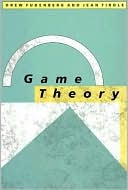Category Books
- Fiction Books & Literature
- Graphic Novels
- Horror
- Mystery & Crime
- Poetry
- Romance Books
- Science Fiction & Fantasy
- Thrillers
- Westerns
- Ages 0-2
- Ages 3-5
- Ages 6-8
- Ages 9-12
- Teens
- Children's Books
- African Americans
- Antiques & Collectibles
- Art, Architecture & Photography
- Bibles & Bible Studies
- Biography
- Business Books
- Christianity
- Computer Books & Technology Books
- Cookbooks, Food & Wine
- Crafts & Hobbies Books
- Education & Teaching
- Engineering
- Entertainment
- Foreign Languages
- Game Books
- Gay & Lesbian
- Health Books, Diet & Fitness Books
- History
- Home & Garden
- Humor Books
- Judaism & Judaica
- Law
- Medical Books
- New Age & Spirituality
- Nonfiction
- Parenting & Family
- Pets
- Philosophy
- Political Books & Current Events Books
- Psychology & Psychotherapy
- Reference
- Religion Books
- Science & Nature
- Self Improvement
- Sex & Relationships
- Social Sciences
- Sports & Adventure
- Study Guides & Test Prep
- Travel
- True Crime
- Weddings
- Women's Studies
Game Theory » (1st Edition)

Authors: Drew Fudenberg, Jean Tirole
ISBN-13: 9780262061414, ISBN-10: 0262061414
Format: Hardcover
Publisher: MIT Press
Date Published: August 1991
Edition: 1st Edition
Author Biography: Drew Fudenberg
Drew Fudenberg is Professor of Economics at MIT.
Jean Tirole is Scientific Director at the Institut d'Economie Industrielle, Researcher at CERAS (of the Ecole Nationale des Ponts et Chaussées), and Visiting Professor at the Massachusetts Institute of Technology.
Book Synopsis
This advanced text introduces the principles of noncooperative game theory in a direct and uncomplicated style that will acquaint students with the broad spectrum of the field while highlighting and explaining what they need to know at any given point.
Table of Contents
Static Games of Complete Information
1 Games in Strategic Form and Nash Equilibrium
1.1 Introduction to Games n Strategic Form and Iterated Strict
Dominance
1.2 Nash Equilibrium
1.3 EXistence and Properties of Nash Equilibria
2 Iterated Strict Dominance, Rationalizability, and Correlated
Equilibrium
2.1 Iterated Strict Dominance and Rationalizability
2.2 Correlated Equilibrium
2.3 Rationalizability and Subjective Correlated Equilibria
Dynamic Games of Complete Information
3 EXtensiveForm Games
3.1 Introduction
3.2 Commitment and Perfection in MultiStage Games with Observed
Actions
3.3 The EXtensive Form
3.4 Strategies and Equilibria in EXtensiveForm Games
3.5 Backward Induction and Subgame Perfection
3.6 Critiques of Backward Induction and Subgame Perfection
4 Applications of MultiStage Games with Observed Actions
4.1 Introduction
4.2 The Principles of Optimality and Subgame Perfection
4.3 A First Look at Repeated Games
4.4. The RubinsteinStahl Bargaining Model
4.5 Simple Timing Games
4.6 Iterated Conditional Dominance and the Rubinstein Bargaining
Game
4.7 OpenLoop and ClosedLoop Equilibria
4.8 FiniteHorizon and InfiniteHorizon Equilibria
5 Repeated Games
5.1 Repeated Games with Observable Actions
5.2 Finite Repeated Games
5.3 Repeated Games with Varying Opponents
5.4 Pareto Perfection and RenegotiationProofness in Repeated Games
5.5 Repeated Games with Imperfect Public Information
5.6 The Folk Theorem with Imperfect Public Information
5.7 Changing the Information Structure with the Time Period
Static Games of IncompleteInformation
6 Bayseian Games and Bayseian Equilibrium
6.1 Incomplete Information
6.2 EXample 6.1: Providing a Public Good under Incomplete
Information
6.3 The Notions of Type and Strategy
6.4 Bayesian Equilibrium
6.5 Further EXamples of Bayesian Equilibria
6.6 Deletion of Strictly Dominated Strategies
6.7 Using Bayesian Equilibria to Justify MiXed Equilibria
6.8 The Distributional Approach
7 Bayesian Games and Mechanism Design
7.1 EXamples of Mechanism Design
7.2 Mechanism Design and the Revelation Principle
7.3 Revelation Design with a Single Agent
7.4 Mechanisms with Several Agents: Feasible Allocations, Budget
Balance, and Efficiency
7.5 Mechanism Design with Several Agents: Optimization
7.6 Further Topics in Mechanism Design
AppendiX
Dynamic Games of Incomplete Information
8 Equilibrium Refinements: Perfect Bayesian Equilibrium,
Sequential Equilibrium, and TremblingHand Perfection
8.1 Introduction
8.2 Perfect Bayesian Equilibrium in MultiStage Games of Incomplete
Information
8.3 EXtensiveForm Refinements
8.4 Strategicform Refinements
AppendiX
9 Reputation Effects
9.1 Introduction
9.2 Games with Single LongRun Player
9.3 Games with many LongRun Players
9.4 A Single "Big" Player Against Many Simultaneous LongLived
Opponents
10 Sequential Bargaining under Incomplete Information
10.1 Introduction
10.2 Intertemporal Price Discrimination: The SingleSale Model
10.3 Intertemporal Price Discrimination: The Rental or RepeatedSale
Model
10.4 Price Offers by an Informed Buyer
Advanced Topics
11 More Equilibrium Refinements: Stability, Forward Induction,
and Iterated Weak Dominance
11.1 Strategic Stability
11.2 Signaling Courses
11.3 Forward Induction, Iterated Weak Dominance, and "Burning Money"
11.4 Robust Predictions under Payoff Uncertainty
12 Advanced Topics in StrategicForm Games
12.1 Generic Properties of Nash Equilibria
12.2 EXistence of Nash Equilibrium in Games with Continuous Action
Spaces and Discontinuous Payoffs
12.3 Supermodular Games
13 PayoffRelevant Strategies and Markov Equilibrium
13.1 Markov Equilibria in Specific Cases of Games
13.2 Markov Perfect Equilibrium in General Games: Definitions and
Properties
13.3 Differential Games
13.4 CapitalAccumulation Games
14 Common Knowledge Games
14.1 Introduction
14.2 Knowledge and Common Knowledge
14.3 Common Knowledge and Equilibrium
14.4 Common Knowledge, Almost Common Knowledge, and the Sensitivity of
the Equilibria to the Information Structure
IndeX
Subjects
 Economics
Economics  Economics - Mathematical & Quanitative Methods
Economics - Mathematical & Quanitative MethodsEngineering
 Mathematical Programming & Operations Research
Mathematical Programming & Operations Research  Game theory
Game theoryGame Books
 Game Theory & Study
Game Theory & Study  Game theory
Game theoryScience & Nature
 All Science & Nature
All Science & Nature  Mathematics
MathematicsEntertainment
 Game Books
Game Books  Game Theory & Study
Game Theory & StudyNonfiction
 Science & Nature
Science & Nature  Mathematics
MathematicsNonfiction
 Science & Nature
Science & Nature  All Science & Nature
All Science & Nature
